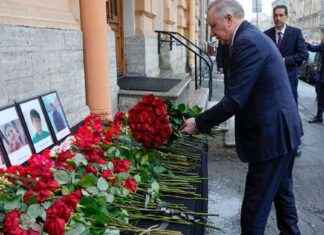Hours after the health authorities of Romania announced a new record of Covid contagions daily, the Parliament of Bucharest overthrew on Tuesday the Government of the Conservative Florin Citu with a motion of censorship of the opposition, opening a political crisis in the second country.
Poor EU.
“Sad, but true (…) If there is a word that defines Romania today that word is ‘crisis’,” said Romanian President Klaus Iohannis, commenting on the outcome of the parliamentary session and alluding the pandemic already
The explosion of the price of energy.
“In case they did not have enough job with solving these problems, some of our politicians have decided to add a government crisis,” continued the head of state.
Initiated by the opposition Democratic Social Party (PSD), the motion, the most voted in the history of post-communist democracy in the Balkan nation, obtained the support of the USR-Plus centrist coalition and the right populists of the Alliance for the
Union of Romanians (AUR).
Together they added an unprecedented figure of 281 votes in favor, 47 more than those necessary to overthrow the Liberal National Party Executive (PNL, Centrodecha) of Prime Minister Citu, who had already lost his majority in Parliament at the beginning of September after leaving USR
-Plus the coalition in power.
While waiting for the president to meet next week with the parties to decide who commissioning the formation of a new executive, the prospects for governance are presented blurred in a country paid to political instability.
The NLP has already announced that it will continue to propose to Citus to form a new government, but its former USR-Plus centuries condition the reissue of the coalition to which it is headed by another head of government.
For its part, the PSD is committed to forcing early elections, for which Parliament should reject, within sixty days, two prime ministers appointed by the President.
The text of the motion accused the Government of Cuta of provoking an unprecedented increase in public debt without getting a brake on the earning of the shopping basket and climbing of gas and light prices.
In addition, he reproached the executive not having avoided the saturation of hospitals in the current pandemic wave, which has forced the health authorities to suspend non-essential hospitalizations for a period of 30 days.
The defendation of the Government of Cuta leaves Romania in a political paralysis that could be eternated if the parties do not agree to form a new executive with sufficient majority in Parliament.
The crisis comes when the coronavirus, on the eve of winter, expands again, with ascending figures of contagions and deaths.
With only one third of the vaccinated adult population, Romania is the partner of the European Union (EU) with the lowest per capita immunization rate, behind Bulgaria.
In the last 24 hours, 15,000 new infections were accounted for, while the number of severe cases of Covid already exceeded 14,000, and more than 10% of these patients are admitted to the UCIS.
With 73 dead for every thousand inhabitants, Romania is, behind Bulgaria and Lithuania, the third country with the highest COVID mortality rate of the EU.
In function interim until a new government is formed, the CTU executive should now continue to apply extremely unpopular restrictions that exclusively affect the not vaccinated and include nocturnal touches and the prohibition of entering bars, restaurants and other premises of
leisure.
Some 15,000 people came out last Saturday to protest against these measures, convened by the Populists of Aur and nationalist, religious and conservative groups.
The demonstration was the most crowned that has lived since the Romania pandemic began, where antivacuna groups are expected to take advantage of the discontent of a population mostly skeptical before vaccination to continue filling the streets against “the sanitary dictatorship”.
In addition to the challenges of the pandemic, Romanians should face without a government with full powers to increase energy and basic services and products experienced by all Europe.
This phenomenon threatens a very raw winter for the population of which it is, behind Bulgaria, the second poorest country in the EU.






